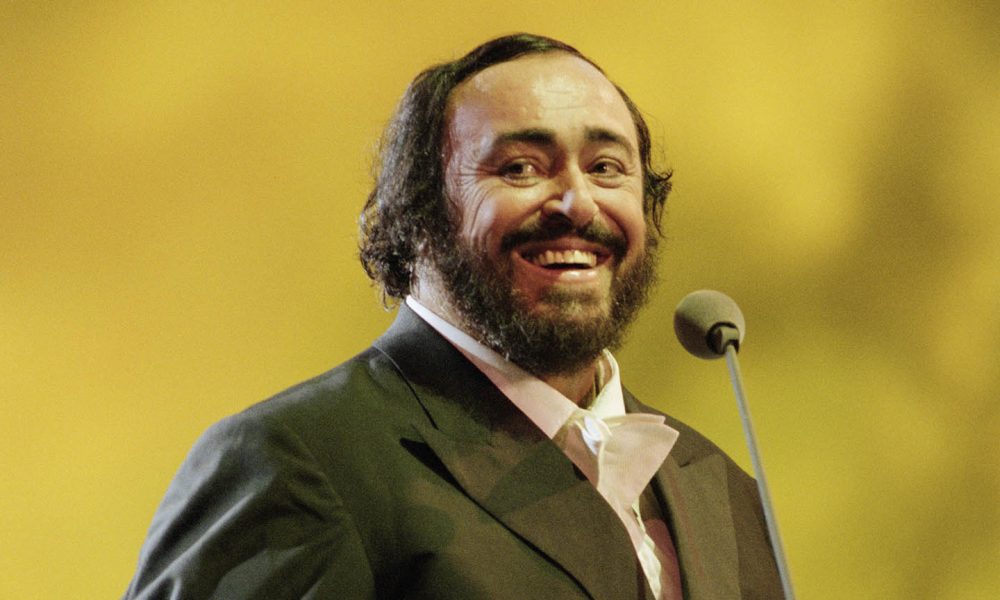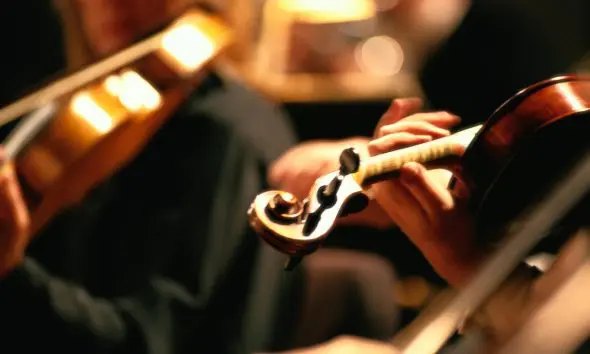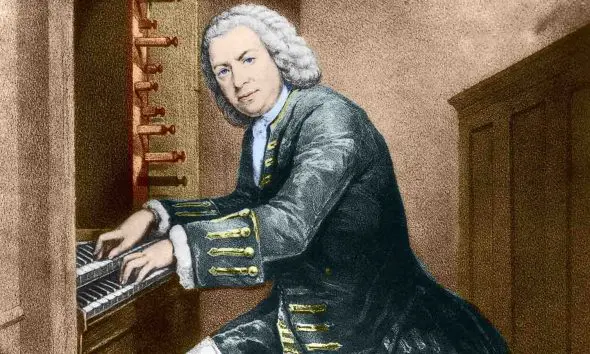‘Nessun Dorma’: The Story Behind Pavarotti’s Aria
Discover the story behind Puccini’s ‘Nessun Dorma’, one of the greatest tenor arias ever written, featuring Pavarotti’s immortal recording.

Even those assiduous purveyors of cruelty the Brothers Grimm never created anything quite as grim as the plot of Puccini’s fairytale opera Turandot, which premiered on April 25, 1926, at La Scala, Milan. Quite apart from the beheadings, tortures, and forced suicide, there’s enough sadism left over to keep a conference of psychiatrists chinwagging for decades. And yet the opera also contains one of the greatest tenor arias ever written, which is guaranteed to tingle even the most opera-resistant of spines. How did Puccini fill “Nessun Dorma” with so much love and hope, when the rest of the opera is so cruel? Scroll down to discover the story behind the famous aria featuring Pavarotti’s immortal recording.
What does ‘Nessun Dorma’ actually mean?
It’s usually translated as “none shall sleep” but it’s actually quite a sophisticated phrase. The verb dormire (“to sleep”) appears here in the type of subjunctive known as congiuntivo esortativo, which really suggests the meaning “I desire that nobody should sleep.” Put that in your pipe and smoke it, grammar nerds.
But why does the singer desire that nobody should sleep? What’s wrong with sleeping?
He’s actually quoting his beloved Princess Turandot. She wants to find out the name of the handsome stud in love with her, just so she can kill him.
That’s one crazy bridegroom
It gets crazier. This is the point (see above) that the princess says to her loyal subjects “No one shall sleep tonight (Nessun Dorma) until you find out his name, or I’ll kill every one of you. And then I’ll kill him too.” She’s already beheaded hundreds of suitors, so she’s not joking. She really wants to stay single.
But the tenor isn’t put off?
Nope. He loves her all the more. He muses on her words “No one shall sleep” then goes on in the aria to say he’s sure he’ll win her hand in the morning. That climactic top note at the end (it’s a top B) appears on the word vincerò which literally means “I will win.”
Does he?
You bet. After a bit more bloodthirstiness, Turandot comes to him in the morning and says that she has now discovered his real name. It’s ‘LOVE’. (Actually, his name is ‘Calaf’ but, hey, poetic license and all that.) She melts into his arms, and they live happily ever after. Despite all those corpses.
Sounds odd, but then plenty of operas are about death and love, I guess
Puccini first began working on the opera in 1920, and one theory is that the work is a response to the upheavals of World War I. The world of Turandot is a place of absolute cruelty and horror, but somehow love still exists within it. For my money, that’s what gives Puccini’s ‘Nessun Dorma’ its power. We know life can be tragic and brutal, but we all want to believe in love and the beauty of self-sacrifice too. It’s a paradox that Puccini expressed deeply in all his operas.
Fair enough. But why haven’t you mentioned football and Pavarotti’s ‘Nessun Dorma’ yet?
Must I? Oh well, I suppose I must. The BBC used Luciano Pavarotti’s immortal 1972 recording of ‘Nessun Dorma’ to promote their coverage of the 1990 World Cup in Italy, and everyone went doolally for it in a big way. Somehow it touched a nerve. In this context, vincerò stopped meaning, “I will win Turandot’s hand in marriage,” and became, “I will win three-nil.”
Did ‘Nessun Dorma’ also win Puccini even greater fame and fortune?
Alas no. He died of throat cancer before he could finish the opera Turandot, so one of his students completed it instead. Since then, several other composers have had a go too. At the world premiere, on April 25, 1926, at La Scala, Milan (over a year after the composer’s death), the conductor, Arturo Toscanini, stopped the performance at the point where Puccini had stopped writing, and the curtain came down.
But the opera became popular after that?
It did. But it has always been problematic too. One difficulty is that Turandot’s change of heart seems to come a bit too quickly to be convincing. Another is that her role demands insane amounts of stamina and power, and it is one of the hardest to cast in the whole soprano repertoire. That’s why opera houses don’t put it on as frequently as Puccini’s other operas like Tosca or La Bohème – much to the chagrin of tenors, who would all love to sing ‘Nessun Dorma’ till the cows come home.
And why is Pavarotti’s version of ‘Nessun Dorma’ so special?
There are hundreds of fabulous recordings of this aria out there, but Pavarotti’s has a particular buzz, and not just because of that football tournament. He’s direct and passionate in his delivery: you really believe he means what he sings. His sound is young and thrilling and vibrant, just as you’d hope from a crazy romantic hero. And that extended top B is truly a thing of wonder. You can really hear the reason why sounds like that are called ‘money notes.’
And why is The Three Tenors’ version of ‘Nessun Dorma’ so special?
The Three Tenors, Plácido Domingo, José Carreras, and Luciano Pavarotti, teamed up for their first joint performance on July 7, 1990, on the eve of the World Cup Final, in Rome. The collaboration was the beginning of instant and near-universal fame for the trio, whose repertoire ranged from opera arias to Neapolitan ballads, Broadway hits, and pop songs. ‘Nessun Dorma’ was performed twice during the Rome concert – once as a solo, and again as an encore, when Pavarotti was joined by Carreras and Domingo. The original live album of the concert, Carreras Domingo Pavarotti In Concert, won the Grammy Award for Best Classical Vocal Performance in 1991 and became the best-selling classical album of all time.
It seems Puccini really knew how to give his tenor a good time
Funnily enough, he actually wrote that top note as a semiquaver – which is a quick note, over in a blink. A few (misguided) tenors have sung it exactly as written too, and it sounds like they’re coughing up a sandwich. No – if a tenor really wants audiences to swoon and cry and gasp, he’d be much better off milking ‘Nessun Dorma’ for all he’s worth. Just like the inimitable Pavarotti.
Recommended Recording
The Three Tenors – 30th Anniversary Edition includes the trio’s complete legendary Rome concert from July 7, 1990, on CD and DVD, with a “making of” documentary. Luciano Pavarotti noted, “For all three of us, the Caracalla concert was a major event in our lives. I hope I am not immodest to think it was also unforgettable for most of the people who were present.”
The Three Tenors – 30th Anniversary Edition can be bought here.






